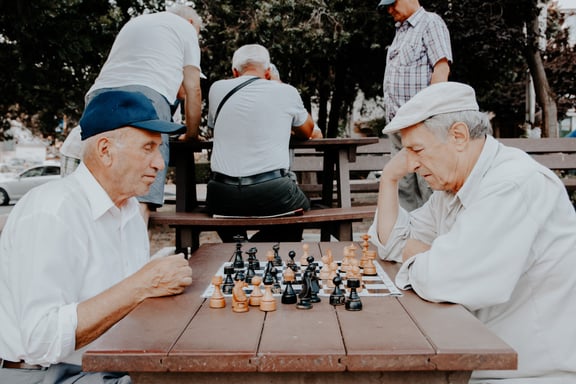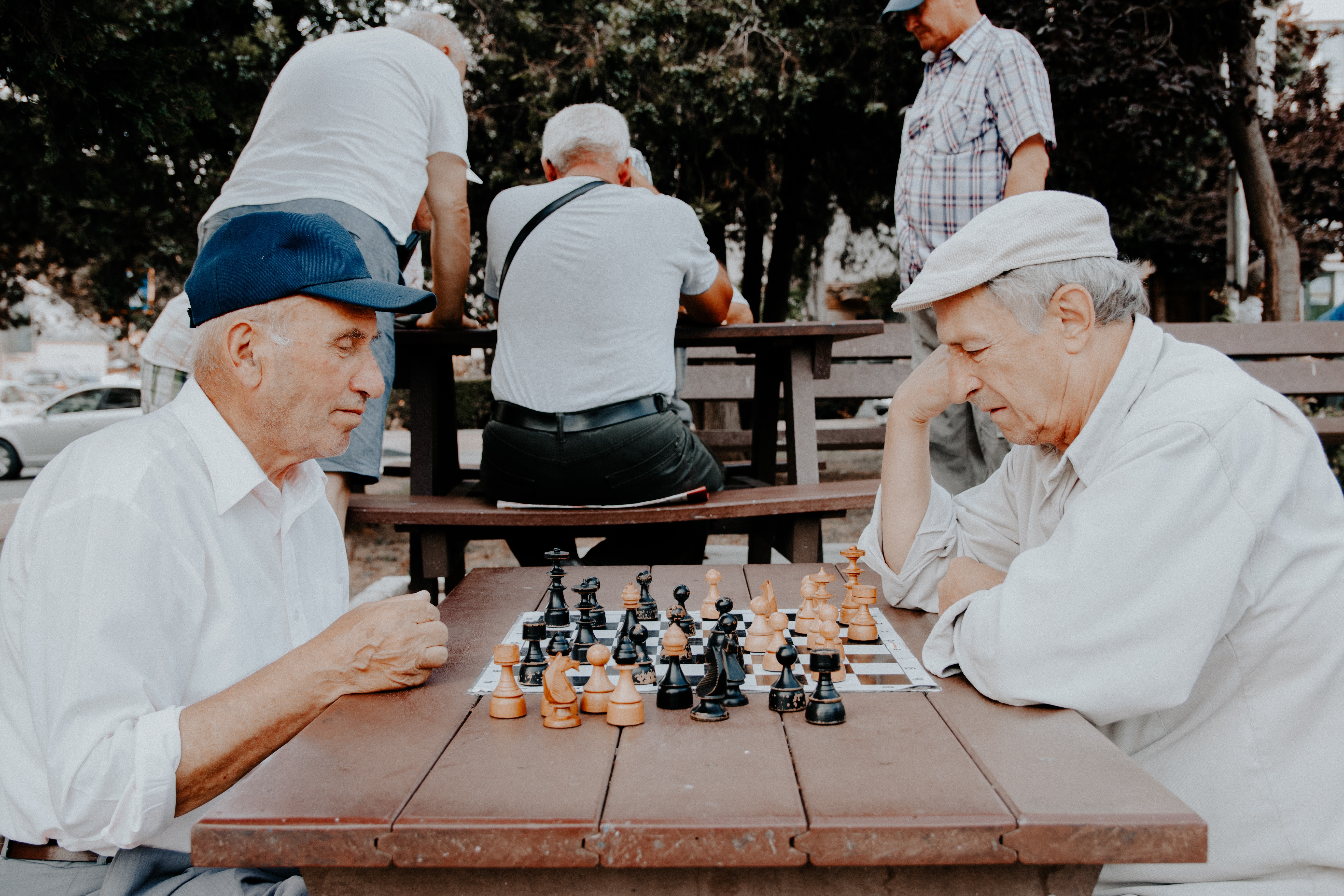Establishing a consistent routine can be immensely beneficial for seniors grappling with Alzheimer's, as it not only helps them stay focused but also reduces the risk of depression. Engaging in activities that stimulate the creative part of their brain brings joy and also fosters a sense of accomplishment. One such enjoyable avenue is playing games or working on puzzles. By incorporating these activities into their daily lives, we can tap into the opportunities to enhance the quality of life for individuals navigating Alzheimer's.

Whether one is affected by dementia or not, research indicates that exposing the brain to various activities is instrumental in stimulating the creation of new neural pathways. These activities encompass problem-solving, memory recall, strategic thinking, and other cognitive skills. The dynamic nature of diverse activities challenges the brain in unique ways, fostering continuous mental growth.
While finding comfort in familiar activities is significant, introducing novel challenges proves to be even more beneficial for brain stimulation. Engaging in new experiences and tasks requires the brain to adapt, learn, and form new connections, thereby contributing to cognitive resilience. It's important to acknowledge that comfort holds significant value, particularly for individuals grappling with Alzheimer's. The decision of which game to play can be pivotal in shaping each day, enhancing the overall well-being and quality of life for those experiencing cognitive decline. In other words, some days it's comfort and some days challenge, often depending on the day's mood.
Games
Here are some ways in which games and puzzles can be helpful:
- Cognitive Stimulation: Games and puzzles provide mental stimulation, which can help maintain cognitive function and slow down the rate of cognitive decline. Amazon has a good range of games available to help seniors engage in activities at their level. Games that may seem too easy or hard might be the proper challenge someone needs at their stage of cognitive decline. Engaging in activities that require memory, attention, and problem-solving skills can help keep the brain active.
- Memory Improvement: Memory games and puzzles can specifically target and exercise memory functions. They may include matching games, card games, or puzzles that require recalling information. Regular engagement in these activities may contribute to improved short-term and long-term memory. Remember the match game? It might be a good place to start with a limited number of matches–increasing if possible. You can also play online if that’s easier.
- Social Interaction: Many games are designed for group participation. Socializing and engaging in group activities can be beneficial for individuals with dementia, as it provides opportunities for social interaction, communication, and emotional connection. This can help combat feelings of isolation and loneliness. Don’t forget to check out the local senior centers for active seniors or those with in-home care. Getting a caregiver, friend, or neighbor to take them can be an opportunity to build new friendships.
- Emotional Well-being: Games can evoke positive emotions and provide a sense of accomplishment. Completing a puzzle or winning a game can boost confidence and self-esteem. Additionally, the enjoyment of the activity itself can contribute to a positive emotional state.
- Motor Skills and Coordination: Certain games and puzzles incorporate physical elements that can play a crucial role in maintaining or enhancing motor skills and coordination. Activities involving fine motor skills, like handling game pieces or cards, can be especially beneficial.
For instance, my father, who battled Alzheimer's, and I used to engage in regular games of billiards. Despite the initial challenges he faced at the pool hall, struggling to find his rhythm, there was a noticeable improvement as we continued to play. Interestingly, he had owned a pool table during my upbringing and he usually outplayed me--which he often did again by the end of each game at the pool hall. The experience, which often included a leisurely lunch and a beer, added an extra layer of enjoyment. Observing the positive impact of these outings, my mom would mention how relaxed and content he appeared upon our return. - Distraction and Relaxation: Games and puzzles can serve as a pleasant distraction from any distressing thoughts or feelings. Engaging in enjoyable activities can help reduce anxiety and stress levels, contributing to a better overall mood.
- Adaptability: Games and puzzles can suit the individual's abilities and preferences. This flexibility allows caregivers to choose activities matching the person's current cognitive and physical abilities, ensuring the activity remains enjoyable and achievable.
Routine
Establishing a routine that includes regular games or puzzle sessions can provide a sense of structure and predictability for individuals with dementia. Predictable routines can be comforting and help reduce confusion. Seniors who live at home can play with a caregiver which builds up their relationship. Trusting relationships can make dealing with the progression of Alzheimer's somewhat easier to navigate.
Consistency is Key:
- Keep the routine consistent to provide a sense of stability.
- Minimize changes to the schedule whenever possible.
Flexibility:
- Be flexible and responsive to the individual's needs and preferences.
- Adjust the routine based on the person's energy levels and comfort.
Communication:
- Use clear and simple language.
- Offer choices to promote a sense of control. If you go to a restaurant with a large menu you can say things like, "Do you want a hamburger today?" If it's no, "How about a pizza, you love their pizza." When you get yes, say something like, "With cheese"?
- Ensure the environment is safe and free from hazards. If they want to do cooking, you can add automatic shut-off controls in case they leave it on.
- Consider safety measures such as handrails and non-slip surfaces.
Professional Support
Seek guidance from healthcare professionals, including occupational therapists or dementia specialists, to tailor the routine to the individual's needs. You may want to seek out a doctor or PA that has specific training for seniors. These Gerontologists or Neurologists see a large number of patients with dementia and often have a lot of useful ideas and perhaps medical options you may not find with a general practitioner.





